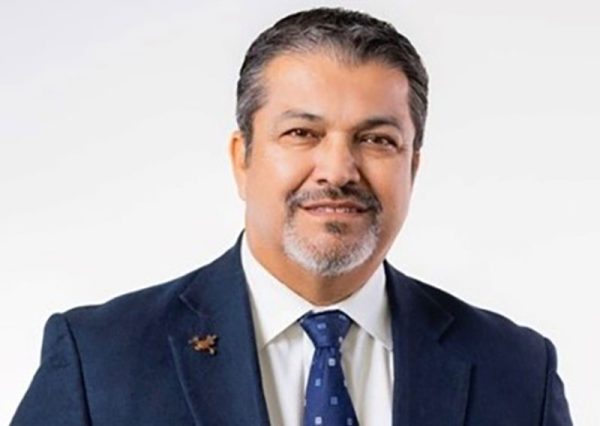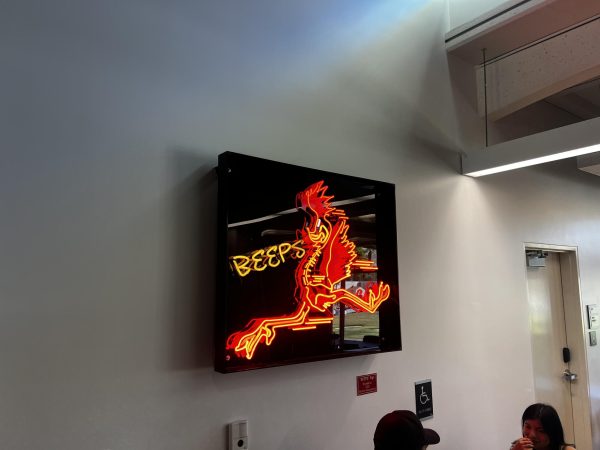Local law enforcement share struggles during the ‘Defund the Police’ movement
The “Defund the Police” movement has created a national divide, which has caused emotional and physical harm facing police officers and their families. The term defund the police refers to taking funds from police departments to spend on other priorities.
A national ABC poll found that while 64% of people do not support defunding the police, more than one-third of America does. A career once admired and looked up to, law enforcement now faces more backlash than ever before as police brutality and BLM protests and riots occur.
This backlash has taken a toll on the officer’s emotional well-being and even their safety. The emotional toll of being an officer weighs heavily on the men and women in blue.
Sergeant Michael Gaunt, who has been with the Riverside County Sheriff’s Department for over 20 years, said, “This career is not like any other; you are never really ‘off duty.’ I do not feel comfortable in crowds. I’m always looking at where the exit is and where I would hide my family if an active shooter occurred. Off duty, I am still thinking of what I would do if someone walks in with a gun or needs to evacuate from the building. My family never knows the true head noise I have.”
Juliet Emerson, a wife to a law enforcement officer, said, “It takes a tremendous toll on me having a husband who works as a police officer. Knowing he is leaving home to protect people, some who hate him, and that he might not come back home haunts me every time he walks out the door.”
National statistics show that these feelings are widespread among law enforcement and that many officers are struggling with the emotional toll of the job.
According to Blue HELP, a national organization that brings awareness to police officer suicide, suicides rose from 172 to 228 from 2017 to 2019. Many officers feel like the national climate has affected how people treat them and feel about their careers. Police seem less excited about their career choice, mainly due to their safety.
Bill Hutcheson of ABC News reports that police deaths have risen by 28% in 2020 compared to 2019, proving cops are rightfully worried about their well-being while in uniform.
Tessa Smith, a corporal for Riverside County Sherriff’s Department, admits she doesn’t think she’d chose this career again if she had to go back and do it again, mainly because she wants to be around for her son. When asked to rate on a scale of 1-10 how worried she was for her safety when she started her career, Smith answered 4, and in 2020 she said 12.
Gaunt also said, “From 2002-2019, I would sit down and eat in a restaurant while on duty in a uniform. Today that does not happen. I will not be seen sitting down in a restaurant in uniform. When I do eat in uniform, I go through a drive-through and drive back to the station where I eat in my vehicle in a secure, gated parking lot, out of public view.”
The toll does not stop at just police officers. Tara Griffin, a law enforcement dispatcher of 22 years, said, “I love what I do, but given the current climate against LEO, as well as some stumbling blocks at my current agency, I am considering a change.”
Why is there so much unrest in the law enforcement community? Many would argue it is because of the news outlets’ portrayal of cops. Cases like George Floyd and Breonna Taylor reach national news, gaining mass attention. It is essential to bring light to injustice when there is misconduct from officers. Still, the law enforcement community feels that most news covered is negative and anti-police, not sharing the positive stories that occur every day.
Lieutenant Chris Willison of Riverside County Sheriff’s Department believes news coverage is rarely positive when covering law enforcement, “It is mostly negative as they seem to rarely cover all of the good and focus on the negative.”
Sergeant Michael Gaunt also said news coverage is “mostly negative.” What can make the relationship between law enforcement officers and the communities they serve better? More training is a consensus among the law enforcement community.
Ryan Ankeny, the husband of a police officer in the Coachella Valley, said, “I think they can use more training regularly to sharpen their skills from verbal de-escalation, to driving, firearm, hand to hand fighting.”
Willison said, “I can only speak from personal experience as the department I work for provides and encourages continual training as often as possible. This is not always the standard across the country, and I am all for additional training for the men and women in law enforcement.” One can argue that better training could help reduce police brutality cases each year and help create an overall better view of the police force.







